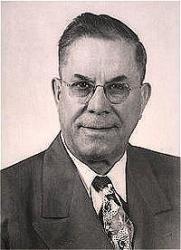Planning worship?
Check out our sister site, ZeteoSearch.org,
for 20+ additional resources related to your search.
- |
User Links
Search Results
While the Years Are Rolling
Author: Adger M. Pace Appears in 2 hymnals First Line: When this weary life on earth is ended and we cross death's river so wide Refrain First Line: And while the years are rolling
While the Years Are Rolling
[When this weary life on earth is ended and we cross death's river so wide]
Appears in 1 hymnal Composer and/or Arranger: Adger M. Pace Used With Text: While the Years Are Rolling
[When this weary life on earth is ended and we cross death's river so wide]
While the Years Are Rolling
Author: A. M. P. Hymnal: Singing Star #133 (1941) First Line: When this weary life on earth is ended and we cross death's river so wide Refrain First Line: And while the years are rolling Languages: English Tune Title: [When this weary life on earth is ended and we cross death's river so wide]
While the Years Are Rolling
While the years are rolling
Author: Adger M. Pace Hymnal: Crowning Harmony #d129 (1940) First Line: When this weary life on earth is ended Languages: English
While the years are rolling
Adger M. Pace

1882 - 1959 Author of "While the Years Are Rolling" Born: August 13, 1882, Pelzer, South Carolina.
Died: February 12, 1959, Lawrence County Hospital, Lawrenceburg, Tennessee.
Buried: Dunn Methodist Church Cemetery, Lawrenceburg, Tennessee.
Pseudonyms: Millard A. Glenn; Charles H. Huff; Audalene Mayfield; Fay Wallington.
Born August 13, 1882 near Pelzer, South Carolina, Adger M. Pace soon gained a love and appreciation for music that characterized the remainder of his life.
He sang bass for seventeen years as a member of the Vaughan Radio Quartet, singing over WOAN--one of the South's first radio stations. He was also active in singing conventions, serving as one of the organizers and the first president of the National Singing Convention in 1937.
Pace's most significant contribution was as a teacher of gospel music. He taught harmony, counterpoint and composition in the Vaughan School of Music in Lawrenceburg, Tennessee, educating the first generation of Southern gospel Music leaders. Beginning in 1920, he served for 37 years as Music Editor for all Vaughan publications.
He was also a notable songwriter--composing more than a thousand songs in his career. Among his many popular contributions were "That Glad Reunion Day," "Jesus Is All I Need," "The Home-coming Week," "The Happy Jubilee," and "Beautiful Star of Bethlehem."
www.sgma.org/inductee_bios
Adger M. Pace


 My Starred Hymns
My Starred Hymns


